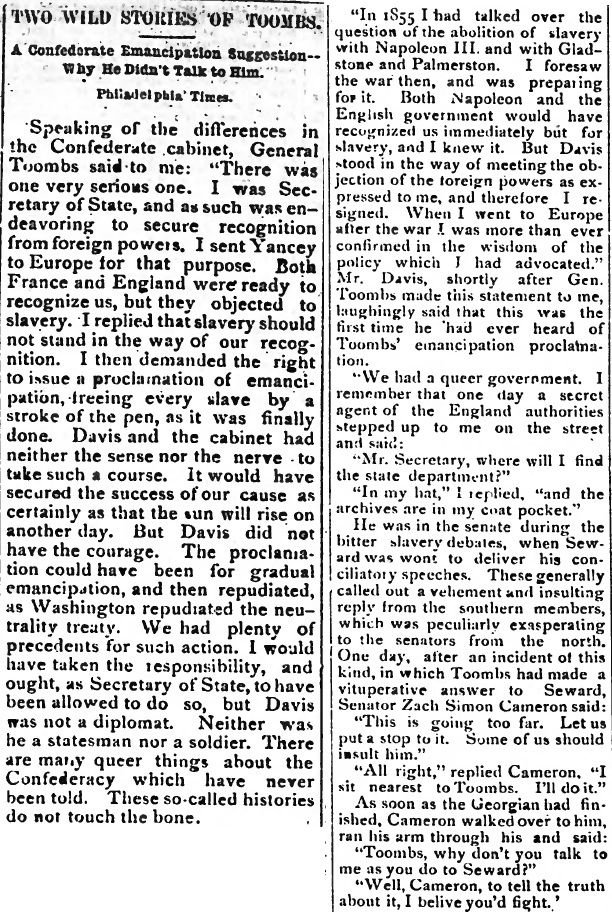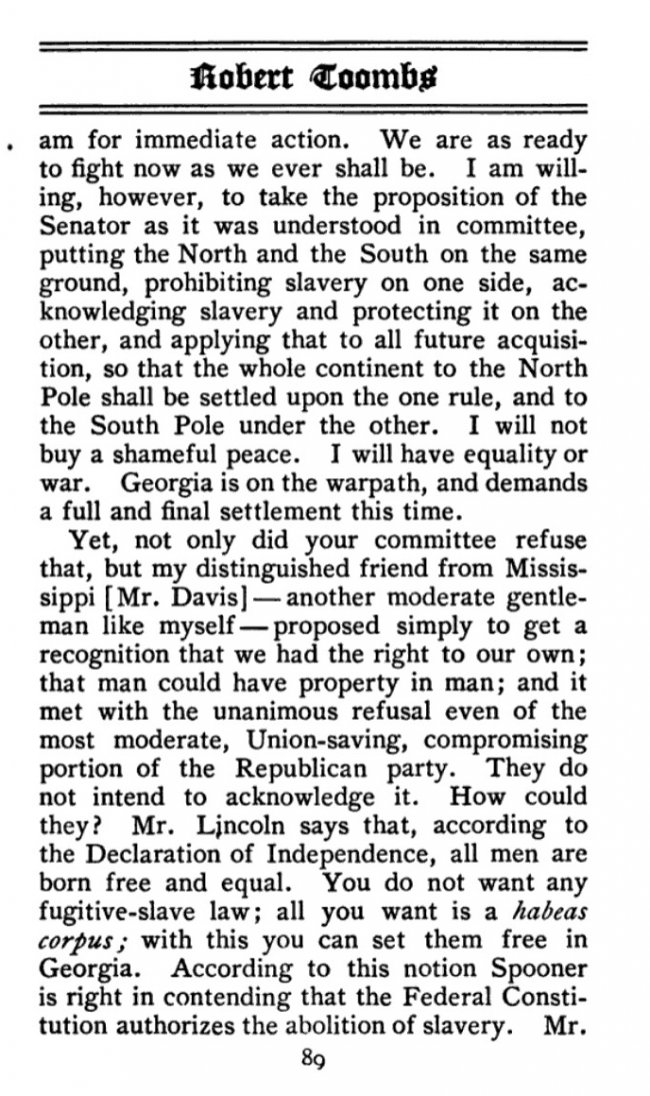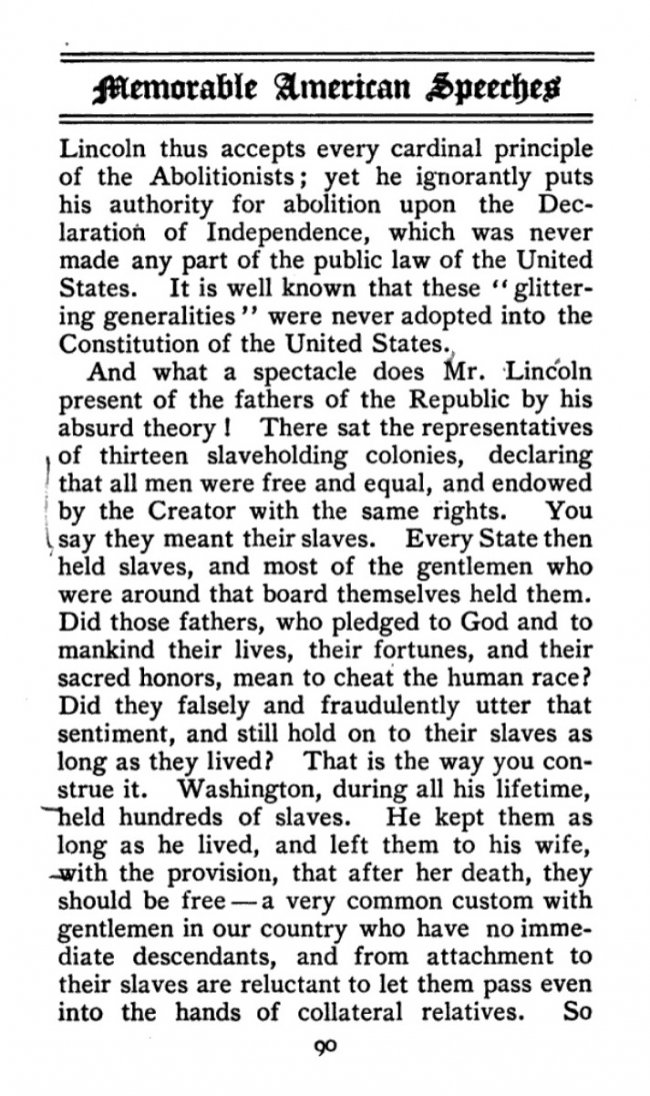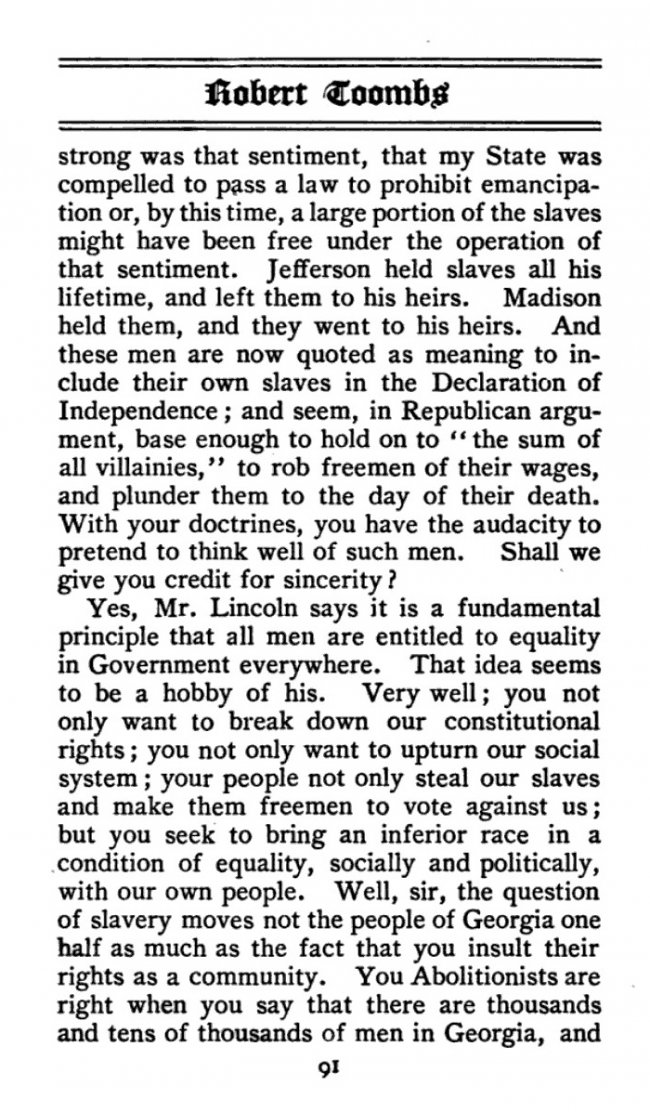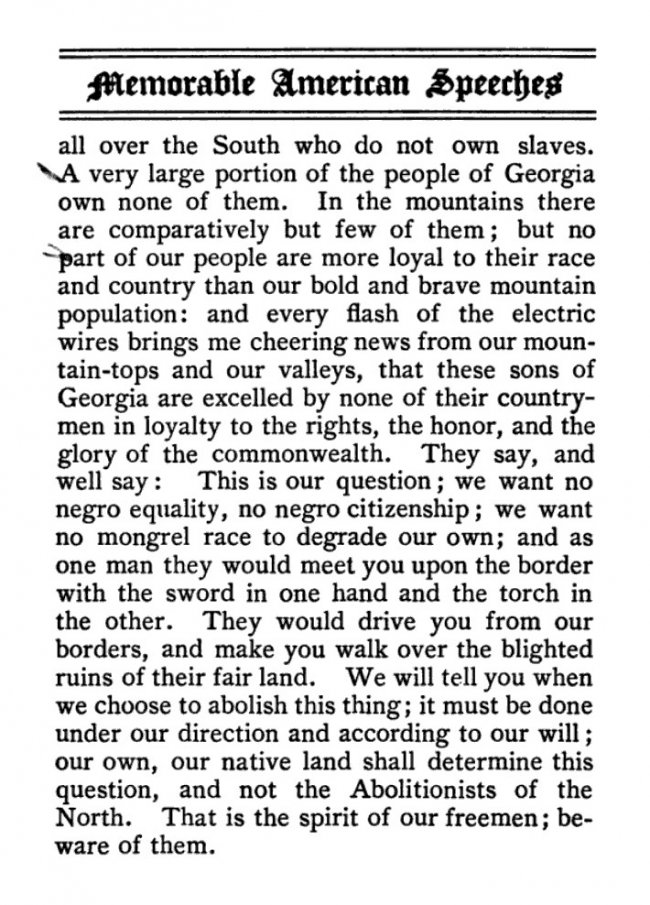Timjoebillybob
Grandmaster
- Feb 27, 2009
- 9,386
- 149
We're talking about a state refusing to extradite a person in line with the other states laws. Those laws could be anything. How about a slave escapes and gets to a free state and their owner discovers them and kills them. Then flees back to their slave state and said slave state refusing to extradite them because killing your slave is legal in that state? Is that all good with you? States Rights right?We aren't talking about lynching, we are talking about returning escaped slaves to their masters. Yes, it would be all well and good if someone fled to a free state and they didn't hand them over. I am literally astonished that you can't see that.
They lost the moral argument how exactly? By firing on a fort of another country that said country was trying to resupply against their will?The fact that you can't see that they lost the moral argument is the root of the problem here.
You don't agree that the feds making a state deal in interstate commerce against their will is an infringement on States Rights?Yes, we disagree, that much we agree on.
Perhaps if those states were so adamant with not following the rules that they agreed to they should have seceded? Wouldn't that have been the moral and honorable thing to do?The fact that you can "make the argument for enforcing the Constitution regarding it however repugnant I believe slavery is" is exactly the mistake I was referring to when I referenced the fire-eaters. I don't know what to do to make you understand the problem with attempting to force others to hand back escaped slaves. If following the law is more important to you than doing what is right, we are VERY different people and this discussion can never lead anywhere.
My opinion is he should have just let them go, bringing them back cost more than lives. I'd say it was the major turning point with federal expansion and loss of rights. And once again, he didn't do it to end slavery. He's said as much in his own words, he just wanted to "preserve the union" no matter the cost. I don't see what he did as wise, iirc his predessor stated that they had no lawful power to keep them in the union. You think it was wise of him to cause the deaths of how many people including slaves simply to enforce his own desires? I don't call that wise, more megalomaniacal. Thank you much for letting me see just how evil he really was.The wisdom to restore the Union and end slavery in the process in spite of the costs involved. I have not previously resolved in my own mind if it was truly the correct course, but I realize now that the obstinance of the slave owners and westward expansion made the conflict inevitable. He did the right thing to bring them back into the Union at the point of a bayonet. I never really believed that until now, but you and Big Red have convinced me that it was the only way to bring the argument to an end. Otherwise, it just goes on and on.




